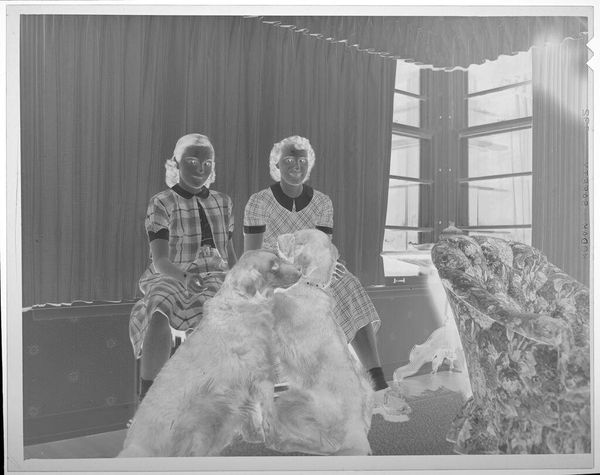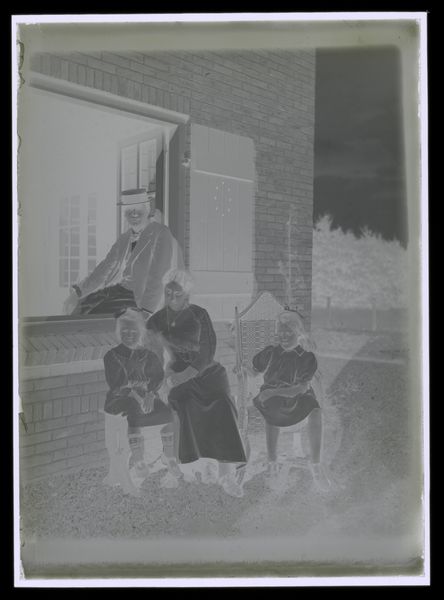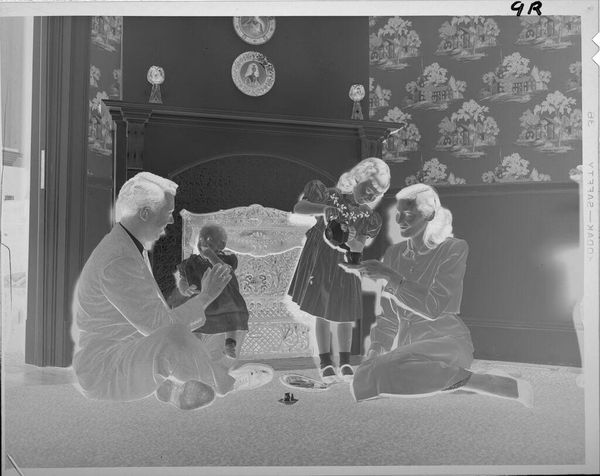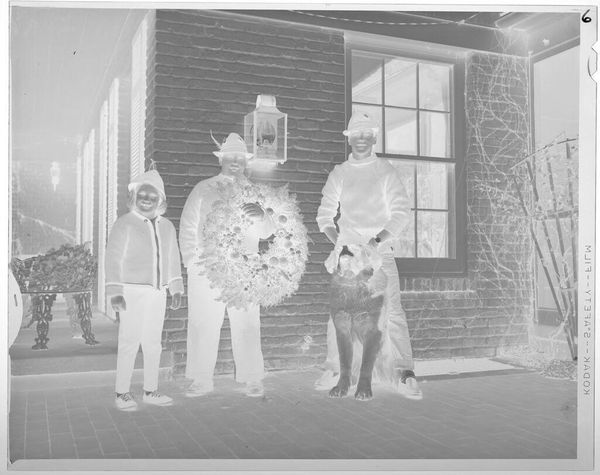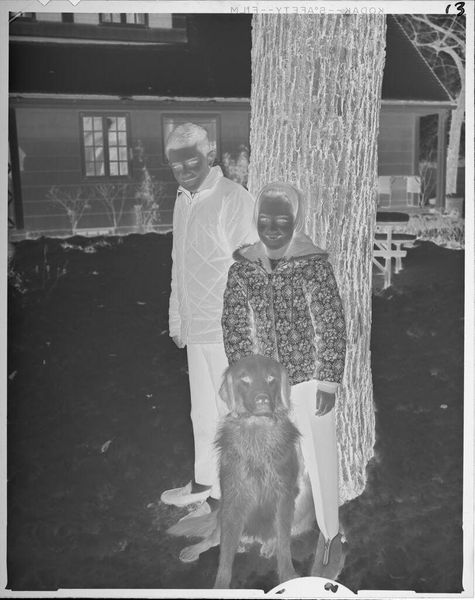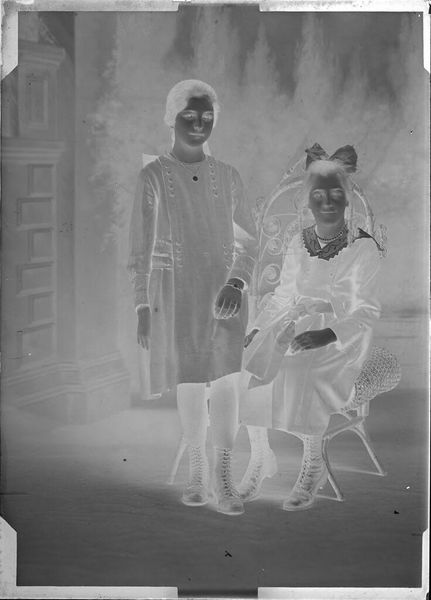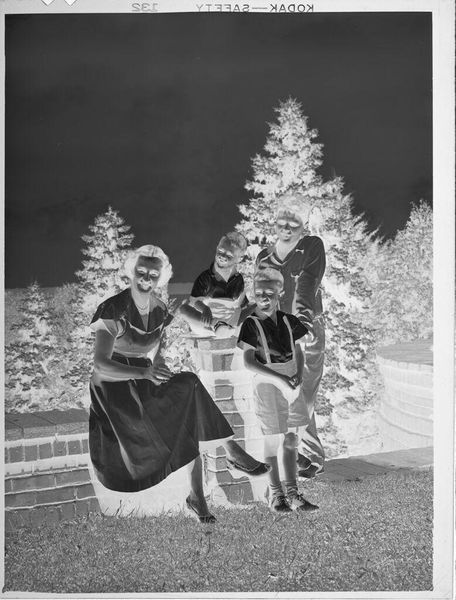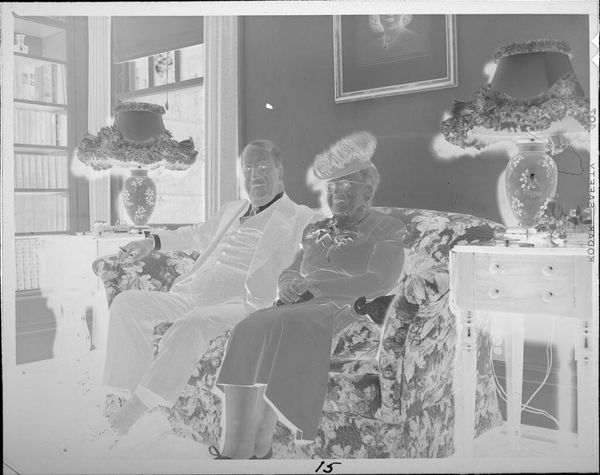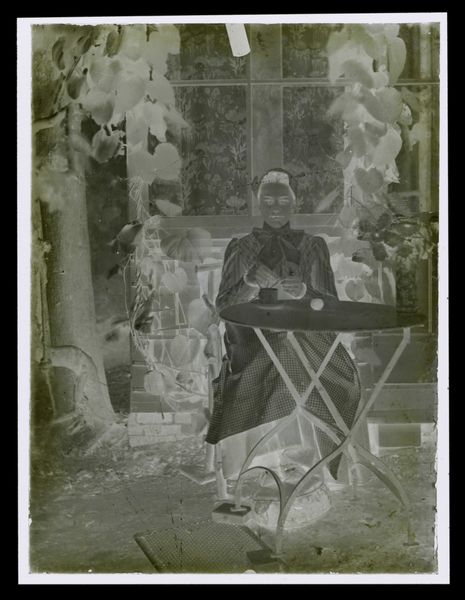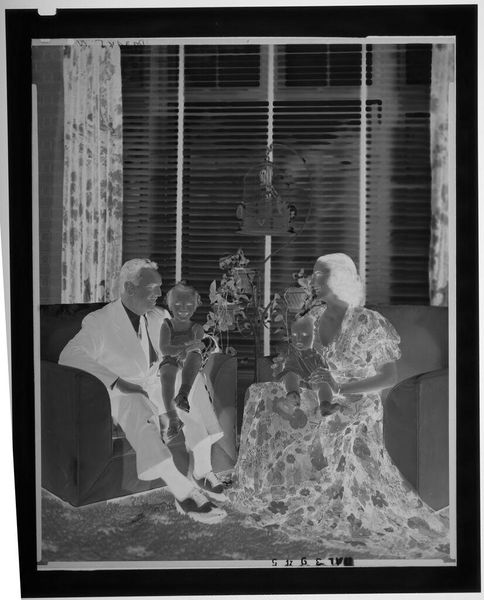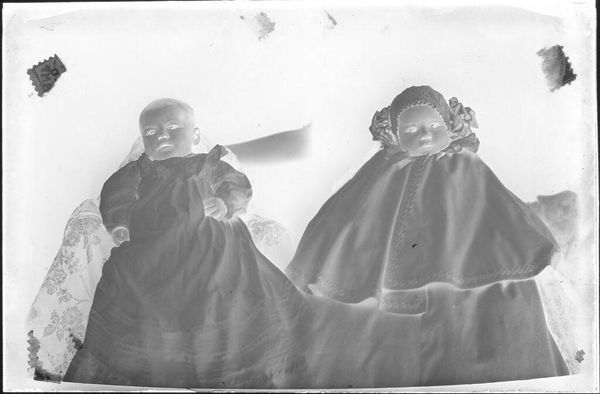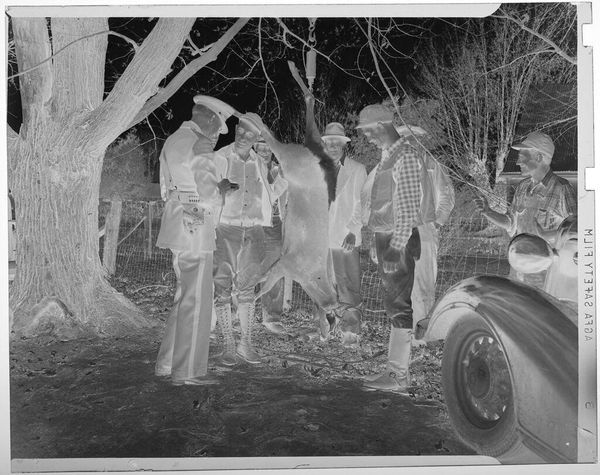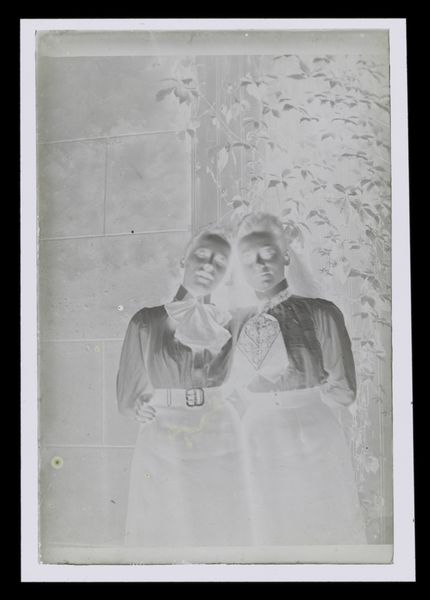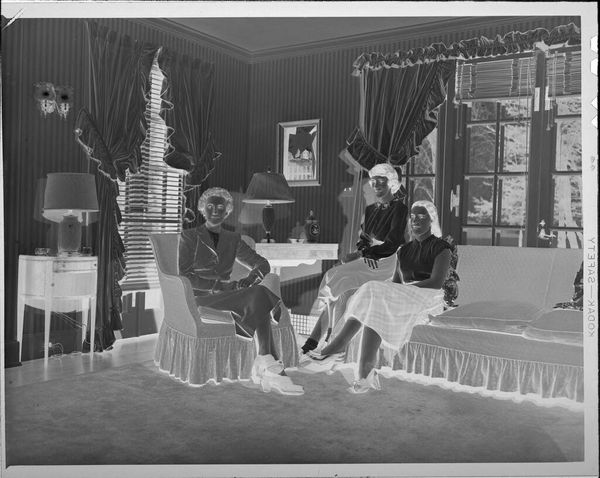
Groepsportret van een onbekende man, vrouw en meisje, op de grond voor hen ligt een hond c. 1865 - 1900
0:00
0:00
photography, gelatin-silver-print
#
portrait
#
still-life-photography
#
black and white photography
#
pictorialism
#
sculpture
#
memorial
#
photography
#
group-portraits
#
gelatin-silver-print
#
genre-painting
#
realism
Dimensions: height 89 mm, width 60 mm
Copyright: Rijks Museum: Open Domain
This photographic negative by Laurens Lodewijk Kleijn captures an unknown family, immortalized with light-sensitive chemicals on a glass plate. Photography in the 19th century involved a complex interplay of chemistry and optics, where each image was the result of carefully controlled processes. The glass plate negative itself represents a fascinating stage in photographic history. Before the advent of flexible film, photographers like Kleijn relied on these fragile supports, coating them with emulsions to capture fleeting moments. Consider the labor involved: from preparing the chemicals to meticulously posing the subjects, photography was a far cry from the instantaneous snapshots we take today. It was a time-consuming and expensive process, which immediately tells us something about the social status of the family portrayed. The rise of photography democratized portraiture, yet it also created new forms of labor and consumption. By attending to the materials and making of this photograph, we gain a deeper appreciation for its cultural significance, and a reminder that every image is the product of specific social and technological conditions.
Comments
No comments
Be the first to comment and join the conversation on the ultimate creative platform.
